
Paul Brand 10am - 12pm
23 June 2023, 06:58 | Updated: 23 June 2023, 10:11
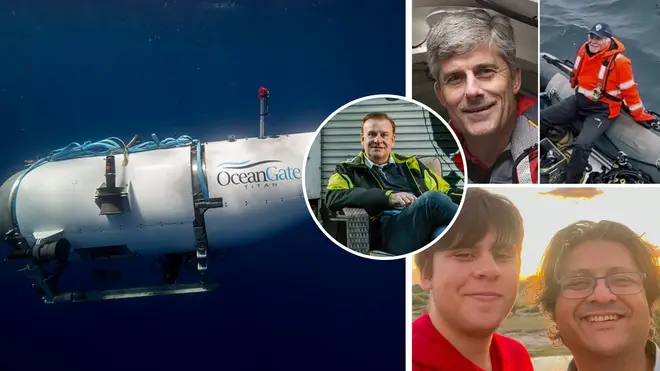
The five men onboard the Titan sub that disappeared on Sunday while on a trip to the depths of the Atlantic Ocean to visit the wreck of the Titanic have been declared dead.
Brits Hamish Harding, Shahzada Dawood and his son Suleman, Paul-Henri Nargeolet and Stockton Rush, the head of OceanGate, the company that owned the ship, died after Titan suffered a "catastrophic implosion", officials have said.
OceanGate said their "hearts are with these five souls and every member of their families during this tragic time, adding: "We grieve the loss of life and joy they brought to everyone they knew."
The US Navy detected “an acoustic anomaly consistent with an implosion” not long after the Titan lost contact with the surface on Sunday.
The Navy told the rescue team, who narrowed down the radius of their search before uncovering a 'debris field' 500 metres (1,600ft) from the bow of the Titanic.
But what is a 'catastrophic implosion'? And will the bodies of the five men be recovered?

Submersible lost on dive to Titanic suffered 'catastrophic implosion', say US Coast Guard
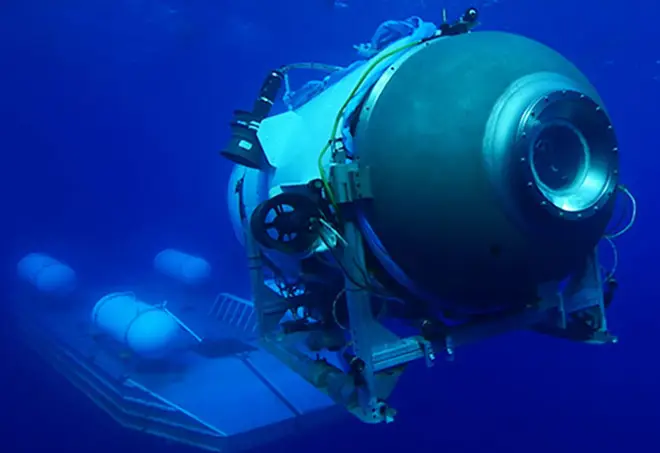
Rescuers looking for the Titan sub found debris that is "consistent with a catastrophic loss of the pressure chamber," the Coastguard said on Thursday.
An implosion is the opposite of an explosion, meaning the huge pressure on the ship as it descended thousands of metres into the sea caused it to collapse in onto itself.
Professor Stefano Brizzolara of Virginia Tech said that in an implosion, mass in an object moves from the outside to the inside at an "incredible speed".
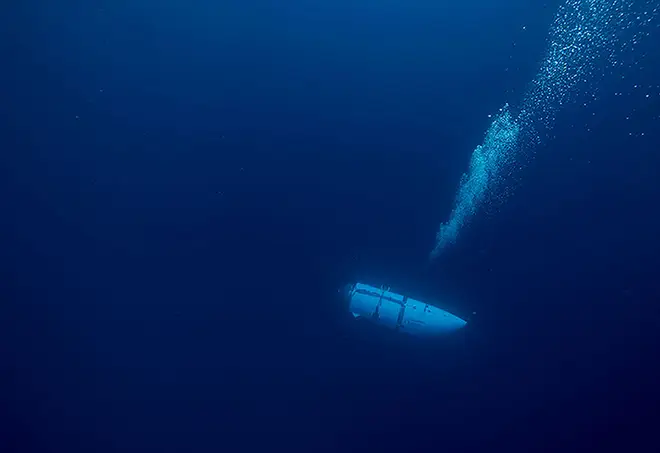
He told ABC: "The inside of the cylinder can practically be considered void, while the pressure of the wave that breaches the hull is 400 times larger."
"This causes a violent flow of water from outside of the cylinder to the inside, with incredible speed."
"We're talking water rushing in at a speed of the order of 1000km."
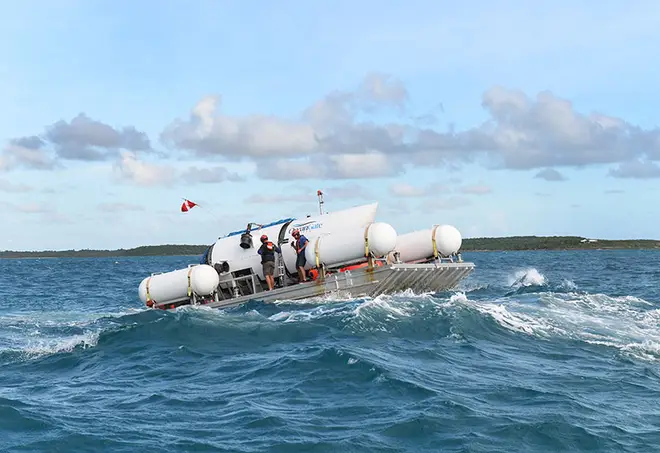
The intensity of the water pressure flooding into the Titan means that the men's deaths are likely to have been sudden, an expert said.
Dr. Dale Molé, the former director of undersea medicine and radiation health for the US Navy, said the whole incident may have taken place in a matter of milliseconds. They may not even have noticed it was happening.
"It would have been so sudden, that they wouldn't even have known that there was a problem, or what happened to them," he told the MailOnline.
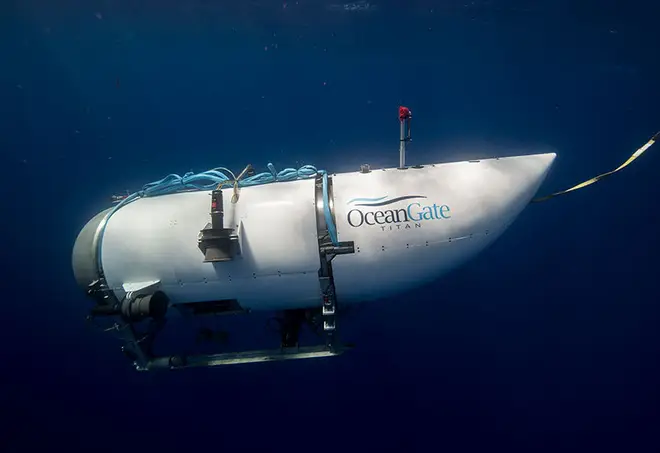
"It's like being here one minute, and then the switch is turned off. You're alive one millisecond, and the next millisecond you're dead."
Other experts agreed, citing the intense water pressure at those depths.
Nicolai Roterman, a deep-sea ecologist at the University of Portsmouth, said: "The pressure down there at 4,000 metres is pretty high. About 5,800 PSI [pounds per square inch] at Titanic depth,' he said.
"If they had any kind of leak, it would lead to an implosion and it would happen in an instant, very immediately.
Greg Stone, a California-based oceanographer, said: "If there was a pressure failure, it's going to be very fast and it's just going to be over in a second."

The US Coastguard refused to answer questions on Thursday about a timescale for rescuers bringing back the bodies of the five men who died on the Titan.
"This is an incredibly unforgiving environment out there on the sea floor, Rear Admiral John Mauger said. "The debris is consistent with the catastrophic implosion of the vessel.

"We will continue to work and search the area down there but I don’t have an answer on prospects at this time."
But it seems unlikely that the people hunting for the ship will even be able to recover them.
The intense pressure at thousands of metres below the sea means the bodies are unlikely to be in a good condition.

Even finding them would be a massive challenge for the rescuers.
Debris from the Titan is spread out over more than a kilometre, and underwater currents could move the remains of the five men around.
Lawrence Brennan, a professor at Fordham University’s School of Law, said that to even try to find the bodies would require equipment that isn't currently at the search site - and even then, this would only give a slim chance of recovering them.